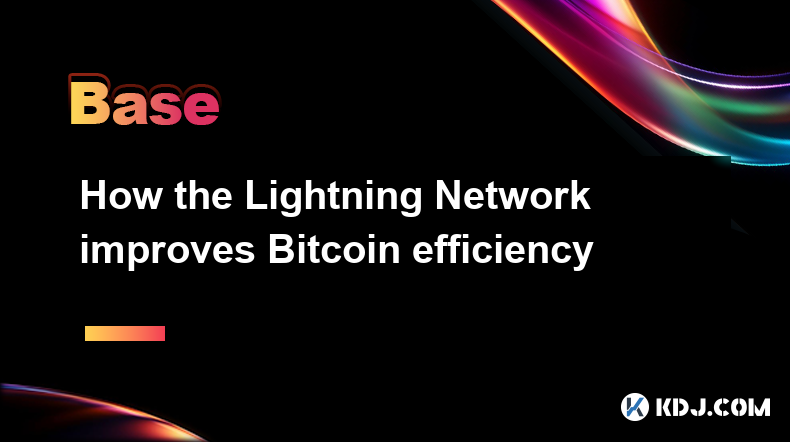-
 Bitcoin
Bitcoin $84,803.5570
-0.58% -
 Ethereum
Ethereum $1,581.8095
-2.23% -
 Tether USDt
Tether USDt $1.0000
0.01% -
 XRP
XRP $2.0745
-0.70% -
 BNB
BNB $590.9474
-0.20% -
 Solana
Solana $136.8939
-1.42% -
 USDC
USDC $0.9998
-0.01% -
 TRON
TRON $0.2458
1.28% -
 Dogecoin
Dogecoin $0.1549
-1.98% -
 Cardano
Cardano $0.6185
-1.97% -
 Chainlink
Chainlink $13.3284
2.48% -
 UNUS SED LEO
UNUS SED LEO $9.3277
0.20% -
 Avalanche
Avalanche $19.4078
-3.53% -
 Stellar
Stellar $0.2440
-1.68% -
 Toncoin
Toncoin $2.9942
0.11% -
 Shiba Inu
Shiba Inu $0.0...01235
-0.26% -
 Hedera
Hedera $0.1656
-0.75% -
 Sui
Sui $2.1044
-2.86% -
 Bitcoin Cash
Bitcoin Cash $336.0143
0.13% -
 Polkadot
Polkadot $3.8834
0.75% -
 Litecoin
Litecoin $77.6292
1.64% -
 Hyperliquid
Hyperliquid $17.4418
-3.17% -
 Dai
Dai $1.0000
0.01% -
 Bitget Token
Bitget Token $4.3962
-3.09% -
 Ethena USDe
Ethena USDe $0.9993
0.02% -
 Pi
Pi $0.6400
-1.47% -
 Monero
Monero $214.2501
-0.04% -
 Uniswap
Uniswap $5.2398
-2.08% -
 Pepe
Pepe $0.0...07515
-0.54% -
 Aptos
Aptos $5.0450
2.02%
What Is Hedge Funds?
Hedge funds leverage advanced investment strategies, including market timing and leverage, to achieve potentially higher returns, but with the caveat of increased risk and higher fees compared to traditional investments.
Oct 17, 2024 at 12:42 pm

What Are Hedge Funds?
1. Definition:
Hedge funds are investment funds that pool capital from investors and employ advanced investment strategies to generate returns. They are typically structured as limited partnerships and are not subject to the same regulations as mutual funds.
2. Investment Strategies:
Hedge funds use a wide range of investment strategies, such as:
- Long-short strategies: Simultaneously buying undervalued assets (long) and selling overvalued assets (short) to profit from the difference.
- Leverage: Borrowing money to increase potential returns.
- Market timing: Predicting market movements and making investments accordingly.
- Fixed income arbitrage: Taking advantage of price inefficiencies in fixed income markets.
- Equity market neutral: Investing in stocks that are expected to have similar returns to neutralize market risk.
3. Risk and Return Characteristics:
Hedge funds typically offer higher potential returns than traditional investments, but also carry higher risk. Their performance can fluctuate significantly depending on market conditions and the fund's specific investment strategies.
4. Fees and Structures:
Hedge funds often charge higher fees than other investment funds, including performance-based fees (e.g., profit-sharing) and management fees. They also typically have higher minimum investment requirements, making them accessible only to high-net-worth investors.
5. Types of Hedge Funds:
- Single-strategy funds: Focus on a specific investment strategy.
- Multi-strategy funds: Use multiple investment strategies.
- Fund of funds: Invest in a portfolio of other hedge funds.
- Long-only funds: Invest only in long positions (buying undervalued assets).
- Hedge funds of funds: Invest in a portfolio of hedge funds.
6. Advantages and Disadvantages:
Advantages:
- Potential for higher returns
- Diversification of investment strategies
- Access to sophisticated investment techniques
Disadvantages:
- Higher fees
- Illiquidity (funds may take time to redeem investments)
- Complex and opaque investment strategies
- High risk
Disclaimer:info@kdj.com
The information provided is not trading advice. kdj.com does not assume any responsibility for any investments made based on the information provided in this article. Cryptocurrencies are highly volatile and it is highly recommended that you invest with caution after thorough research!
If you believe that the content used on this website infringes your copyright, please contact us immediately (info@kdj.com) and we will delete it promptly.
- Missed EOS's Early Surge? Qubetics Is Making Waves Among Top Altcoins for Massive Return Potential
- 2025-04-21 06:35:13
- Cardano (ADA) Price Prediction: Bulls Cluster Around $0.60 Support as Charles Hoskinson Hints at Strained Trump Relationship
- 2025-04-21 06:35:13
- Arctic.P.O.C. Coin Is Your 2025 Rocket to the Moon—Secure Your Spot Before It Explodes
- 2025-04-21 06:30:13
- Pi Coin Gains Steam as Whales Accumulate – What's Next?
- 2025-04-21 06:30:13
- Today, most of Heidizaini’s time is spent on his metal detector business, and maintaining a network of agents in different states who direct purchase requests to him.
- 2025-04-21 06:25:13
- Bitcoin Cash Recovers 10%, AVAX Finds Support—BlockDAG's 600% Bonus & Early Access Draw Heavy Interest
- 2025-04-21 06:25:13
Related knowledge

The function of cross-chain bridges in blockchain
Apr 19,2025 at 10:01am
The function of cross-chain bridges in blockchain is a pivotal topic within the cryptocurrency ecosystem, as these tools enable the seamless transfer of assets and data across different blockchain networks. This article delves into the various aspects of cross-chain bridges, explaining their importance, how they work, and the benefits and challenges the...

How the Lightning Network improves Bitcoin efficiency
Apr 17,2025 at 08:56pm
The Lightning Network represents a significant advancement in the Bitcoin ecosystem, aiming to address some of the most pressing issues related to transaction speed and cost. By enabling off-chain transactions, the Lightning Network drastically improves Bitcoin's efficiency, allowing for faster and cheaper transactions. This article will explore how the...

Market value ranking basis in cryptocurrencies
Apr 20,2025 at 05:08am
The market value ranking in cryptocurrencies is a crucial metric that investors and enthusiasts use to gauge the relative size and importance of different digital assets. This ranking is primarily based on the total market capitalization of each cryptocurrency, which is calculated by multiplying the current price of a single unit of the cryptocurrency b...

What is the role of nodes in the blockchain
Apr 20,2025 at 03:29pm
The role of nodes in the blockchain is fundamental to the operation and integrity of the network. Nodes are the individual computers or devices that participate in the blockchain network. They play a critical role in maintaining the decentralized nature of blockchain technology, ensuring that transactions are verified, recorded, and distributed across t...

Analysis of the KYC process of cryptocurrency exchanges
Apr 17,2025 at 05:07pm
The Know Your Customer (KYC) process is a critical component in the operations of cryptocurrency exchanges. It serves as a regulatory measure to prevent fraud, money laundering, and other illicit activities. KYC procedures are designed to verify the identity of users and ensure compliance with financial regulations. This article delves into the various ...

The operating mechanism behind the stablecoin USDT
Apr 20,2025 at 08:08am
The stablecoin USDT, also known as Tether, is a cryptocurrency designed to maintain a stable value by pegging it to a reserve asset, typically the US dollar. Understanding the operating mechanism behind USDT is crucial for anyone interested in the cryptocurrency market, as it plays a significant role in trading and liquidity. This article will delve int...

The function of cross-chain bridges in blockchain
Apr 19,2025 at 10:01am
The function of cross-chain bridges in blockchain is a pivotal topic within the cryptocurrency ecosystem, as these tools enable the seamless transfer of assets and data across different blockchain networks. This article delves into the various aspects of cross-chain bridges, explaining their importance, how they work, and the benefits and challenges the...

How the Lightning Network improves Bitcoin efficiency
Apr 17,2025 at 08:56pm
The Lightning Network represents a significant advancement in the Bitcoin ecosystem, aiming to address some of the most pressing issues related to transaction speed and cost. By enabling off-chain transactions, the Lightning Network drastically improves Bitcoin's efficiency, allowing for faster and cheaper transactions. This article will explore how the...

Market value ranking basis in cryptocurrencies
Apr 20,2025 at 05:08am
The market value ranking in cryptocurrencies is a crucial metric that investors and enthusiasts use to gauge the relative size and importance of different digital assets. This ranking is primarily based on the total market capitalization of each cryptocurrency, which is calculated by multiplying the current price of a single unit of the cryptocurrency b...

What is the role of nodes in the blockchain
Apr 20,2025 at 03:29pm
The role of nodes in the blockchain is fundamental to the operation and integrity of the network. Nodes are the individual computers or devices that participate in the blockchain network. They play a critical role in maintaining the decentralized nature of blockchain technology, ensuring that transactions are verified, recorded, and distributed across t...

Analysis of the KYC process of cryptocurrency exchanges
Apr 17,2025 at 05:07pm
The Know Your Customer (KYC) process is a critical component in the operations of cryptocurrency exchanges. It serves as a regulatory measure to prevent fraud, money laundering, and other illicit activities. KYC procedures are designed to verify the identity of users and ensure compliance with financial regulations. This article delves into the various ...

The operating mechanism behind the stablecoin USDT
Apr 20,2025 at 08:08am
The stablecoin USDT, also known as Tether, is a cryptocurrency designed to maintain a stable value by pegging it to a reserve asset, typically the US dollar. Understanding the operating mechanism behind USDT is crucial for anyone interested in the cryptocurrency market, as it plays a significant role in trading and liquidity. This article will delve int...
See all articles





















































































